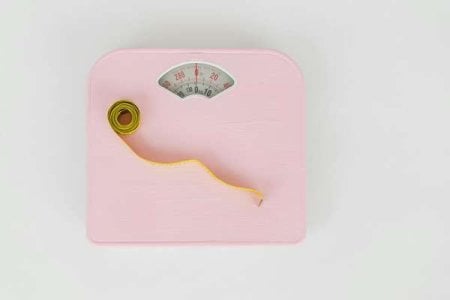This Shocking New Symptom in Ozempic Users Could Derail Your Weight Loss Goals
By
Danielle F.
- Replies 10
The journey to weight loss can be fraught with challenges, and for many seniors, medication can be a helpful tool in this battle. However, a recent revelation by a top doctor has raised concerns about a new symptom experienced by users of the popular weight loss drug Ozempic, and it's something our readers at the Seniors Discount Club should be aware of.
Dr Daniel Rosen, a New York-based surgeon and obesity medicine specialist, has reported a worrying trend among his patients using Ozempic and similar medications. A condition known as allodynia, characterised by an abnormal hypersensitivity to pain, has been observed. This means that everyday sensations like the touch of clothing or a gentle breeze can become excruciating, akin to the pain of a severe sunburn.

Allodynia can manifest in different forms, as highlighted by the Cleveland Clinic. Dynamic allodynia results in pain from moving objects across the skin, tactile allodynia from any pressure, and thermal allodynia from slight temperature changes. Imagine the discomfort of a cool evening breeze or simply dressing in the morning becoming a source of pain.
Dr Rosen has noted that this condition seems to be more prevalent in patients on higher doses of weight loss medications like semaglutide, the generic name for Ozempic. While the exact cause of this increased skin nerve sensitivity remains unclear, the lack of research on this side effect is concerning.
To mitigate the symptoms of allodynia, Dr Rosen has taken the step of reducing the dosage of the weight loss medication for his patients, which has led to immediate relief for some, while others have seen a more gradual improvement.
Ozempic, along with Wegovy and Mounjaro, belongs to a class of injectable drugs known as GLP-1 receptor agonists. They mimic a hormone that slows down food processing in the gut, thereby reducing appetite and food intake. Clinical trials have shown significant weight loss results, with an average of 15 to 22 per cent body weight reduction.
Despite their effectiveness, these drugs are not without side effects. Common issues include nausea, diarrhoea, abdominal pain, constipation, and fatigue. The emergence of allodynia as a potential side effect adds to the list of considerations for those using these medications.
Dr Anastassia Amaro, a weight loss specialist at Penn Medicine, has also observed allodynia in patients on semaglutide. In some cases, reducing the dose or switching to a different medication has provided relief.
It's important to note that allodynia is not currently recognised by the FDA as an official side effect of GLP-1 drugs, and no studies have yet investigated the link between these medications and the condition. While Dr Rosen doesn't view allodynia as overly concerning unless it becomes bothersome, it's a side effect that patients must consider against the benefits of the medication.
For seniors, who may already be managing multiple health issues, the potential for such a side effect could be particularly disruptive. If you're using weight loss drugs and experience any unusual pain sensations, it's crucial to discuss this with your doctor. Adjusting the medication may alleviate the problem without sacrificing the progress you've made towards your weight loss goals.

At the Seniors Discount Club, we encourage our members to stay informed about their health choices. Have you or someone you know experienced similar symptoms while on weight loss medication? Share your experiences in the comments below, and let's support each other in our health journeys.
Dr Daniel Rosen, a New York-based surgeon and obesity medicine specialist, has reported a worrying trend among his patients using Ozempic and similar medications. A condition known as allodynia, characterised by an abnormal hypersensitivity to pain, has been observed. This means that everyday sensations like the touch of clothing or a gentle breeze can become excruciating, akin to the pain of a severe sunburn.

Ozempic, a medicine for type two diabetes, has been heavily used for weight loss. Image Credit: Pexels/SHVETS production
Allodynia can manifest in different forms, as highlighted by the Cleveland Clinic. Dynamic allodynia results in pain from moving objects across the skin, tactile allodynia from any pressure, and thermal allodynia from slight temperature changes. Imagine the discomfort of a cool evening breeze or simply dressing in the morning becoming a source of pain.
Dr Rosen has noted that this condition seems to be more prevalent in patients on higher doses of weight loss medications like semaglutide, the generic name for Ozempic. While the exact cause of this increased skin nerve sensitivity remains unclear, the lack of research on this side effect is concerning.
To mitigate the symptoms of allodynia, Dr Rosen has taken the step of reducing the dosage of the weight loss medication for his patients, which has led to immediate relief for some, while others have seen a more gradual improvement.
Ozempic, along with Wegovy and Mounjaro, belongs to a class of injectable drugs known as GLP-1 receptor agonists. They mimic a hormone that slows down food processing in the gut, thereby reducing appetite and food intake. Clinical trials have shown significant weight loss results, with an average of 15 to 22 per cent body weight reduction.
Despite their effectiveness, these drugs are not without side effects. Common issues include nausea, diarrhoea, abdominal pain, constipation, and fatigue. The emergence of allodynia as a potential side effect adds to the list of considerations for those using these medications.
Dr Anastassia Amaro, a weight loss specialist at Penn Medicine, has also observed allodynia in patients on semaglutide. In some cases, reducing the dose or switching to a different medication has provided relief.
It's important to note that allodynia is not currently recognised by the FDA as an official side effect of GLP-1 drugs, and no studies have yet investigated the link between these medications and the condition. While Dr Rosen doesn't view allodynia as overly concerning unless it becomes bothersome, it's a side effect that patients must consider against the benefits of the medication.
For seniors, who may already be managing multiple health issues, the potential for such a side effect could be particularly disruptive. If you're using weight loss drugs and experience any unusual pain sensations, it's crucial to discuss this with your doctor. Adjusting the medication may alleviate the problem without sacrificing the progress you've made towards your weight loss goals.
Key Takeaways
- A top doctor in New York has observed a new symptom, allodynia, among patients using Ozempic for weight loss.
- Allodynia is a hypersensitivity to pain where even minor stimuli like wearing clothes or wind on the skin can cause discomfort.
- The doctor has found that reducing the dosage of the weight loss medication alleviates the symptoms of allodynia for patients.
- While allodynia is not currently recognised as an official side effect by the FDA, it's important for patients on weight loss drugs to be aware of this possible symptom and consult their doctor if it occurs.








